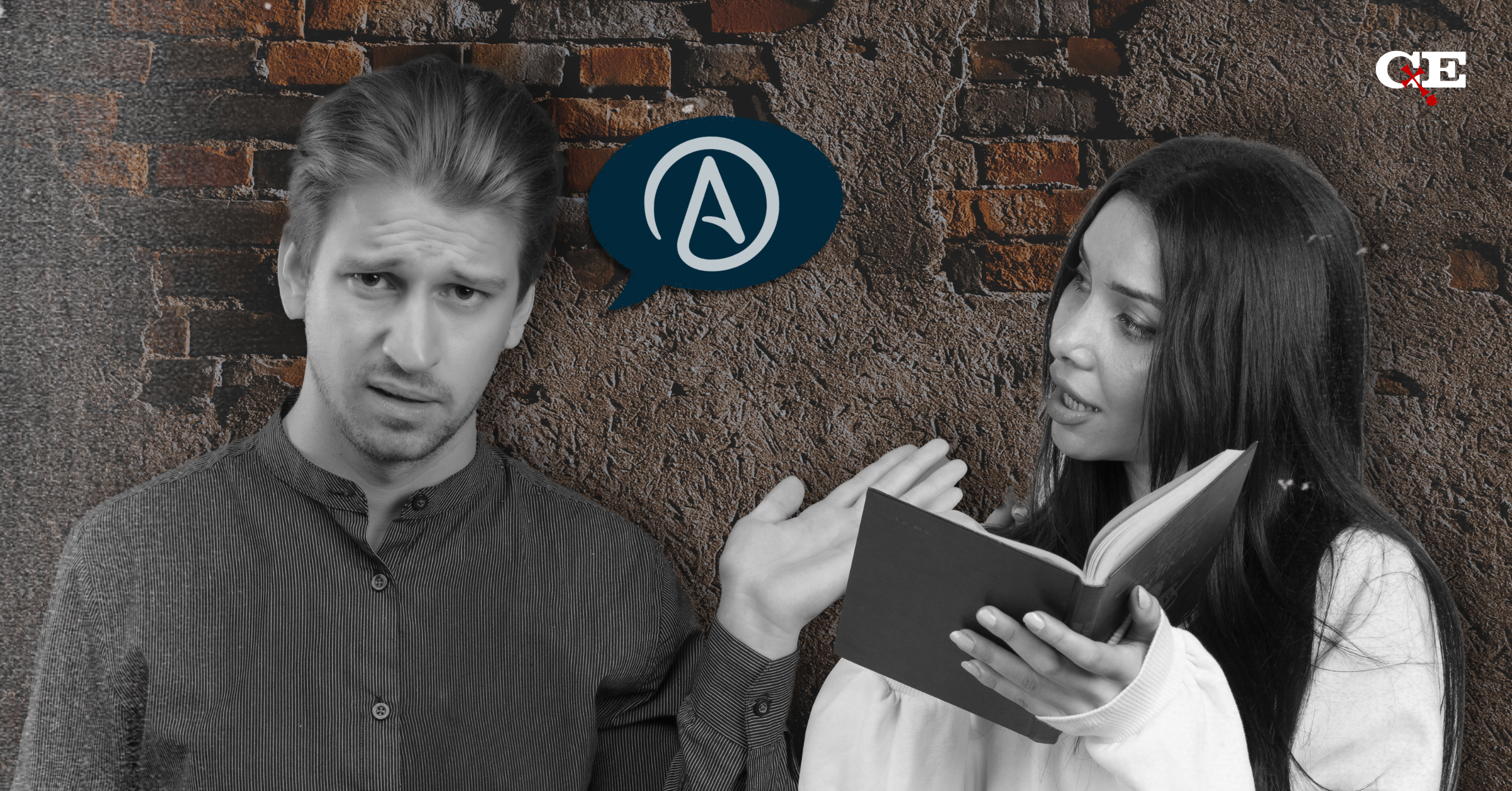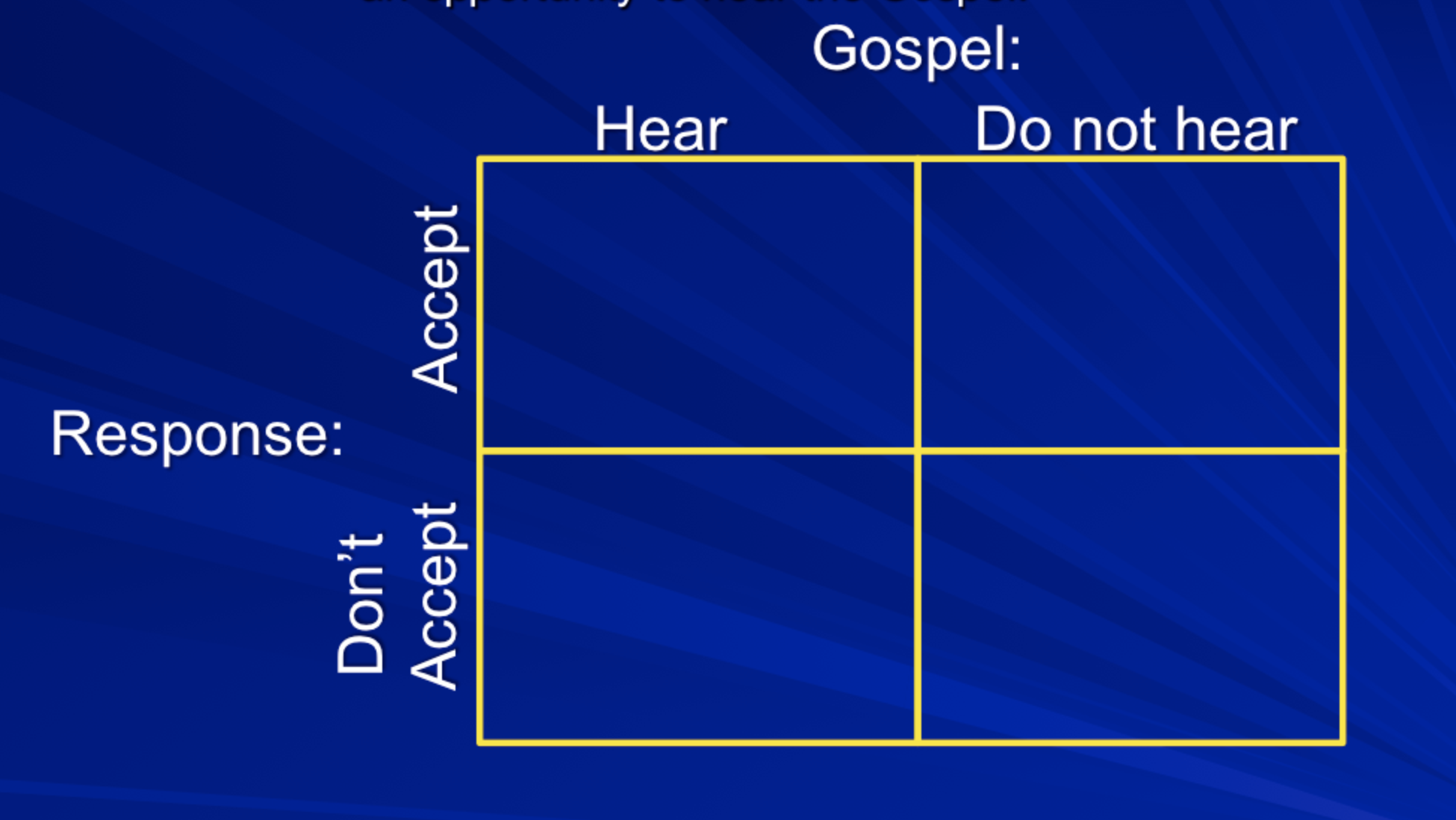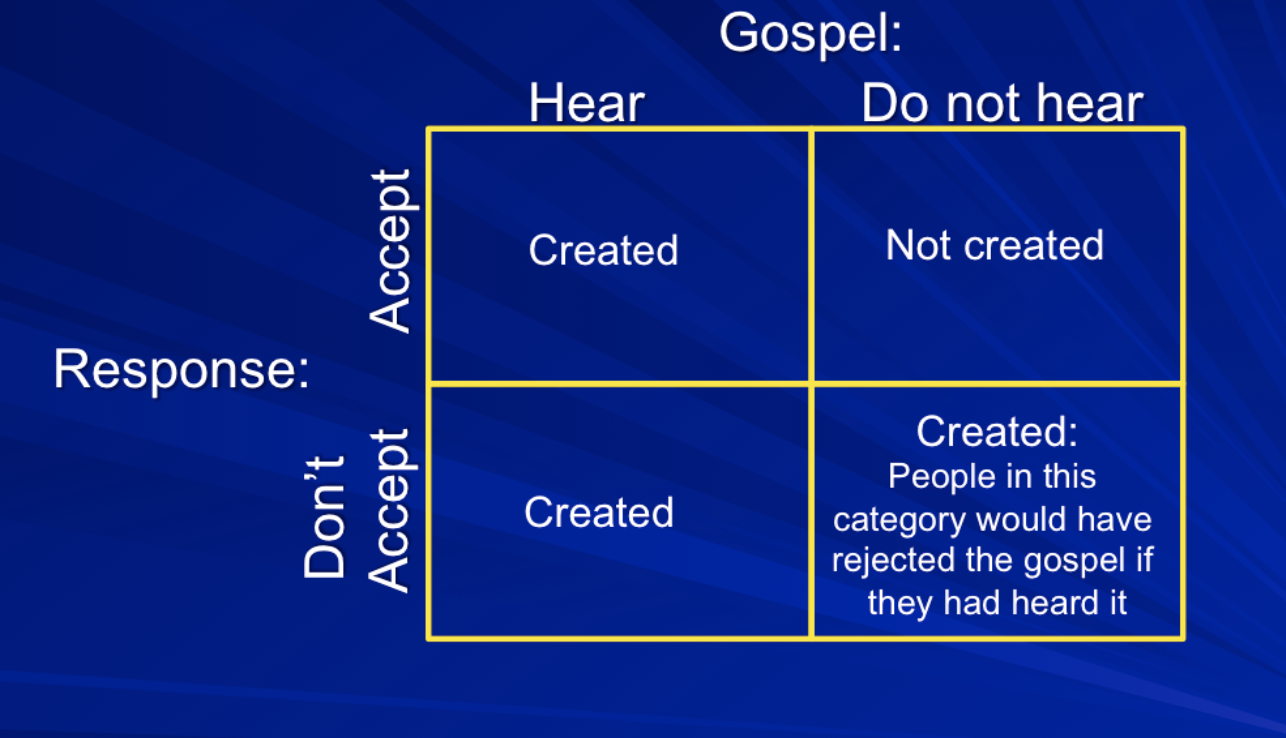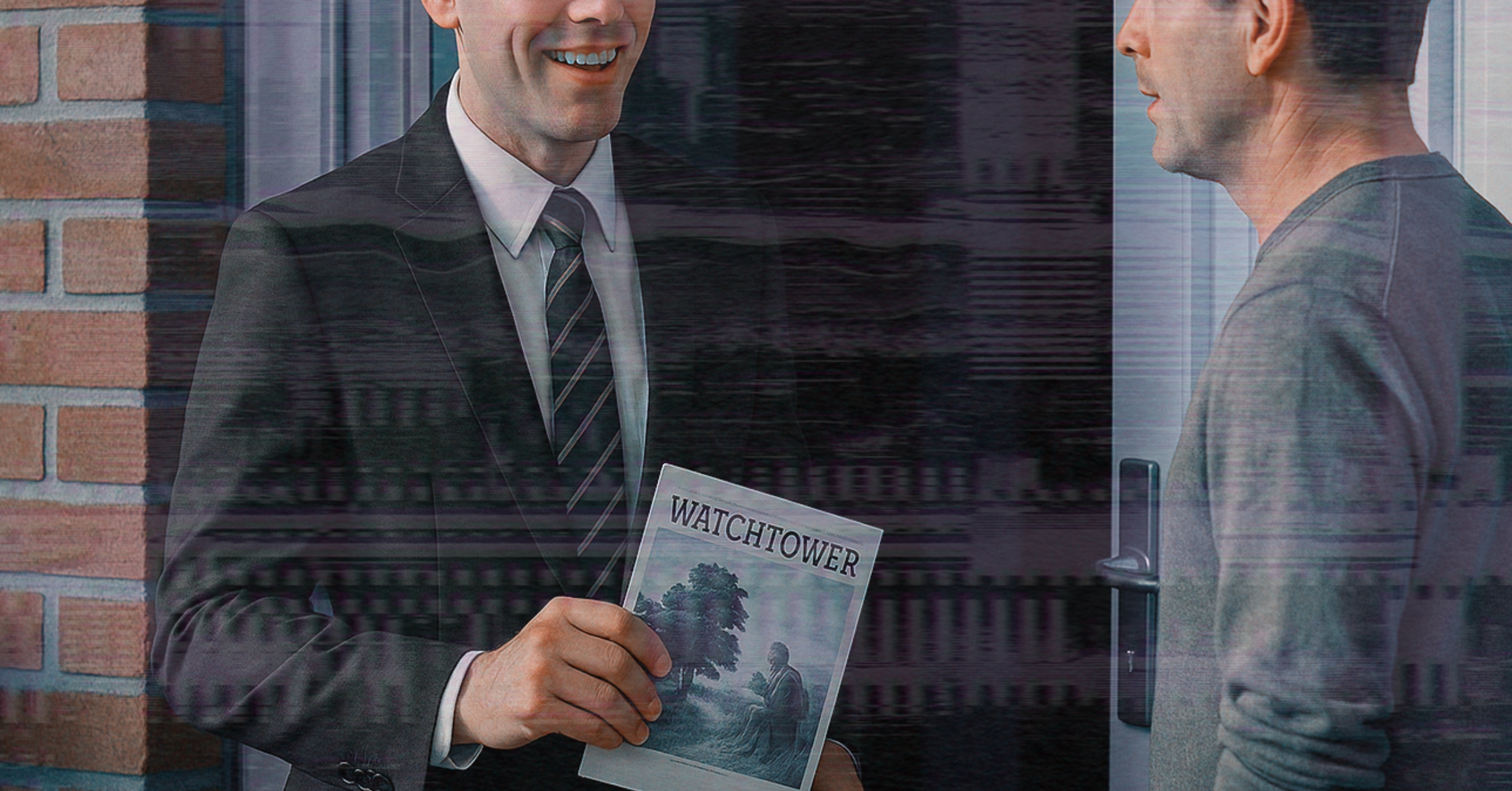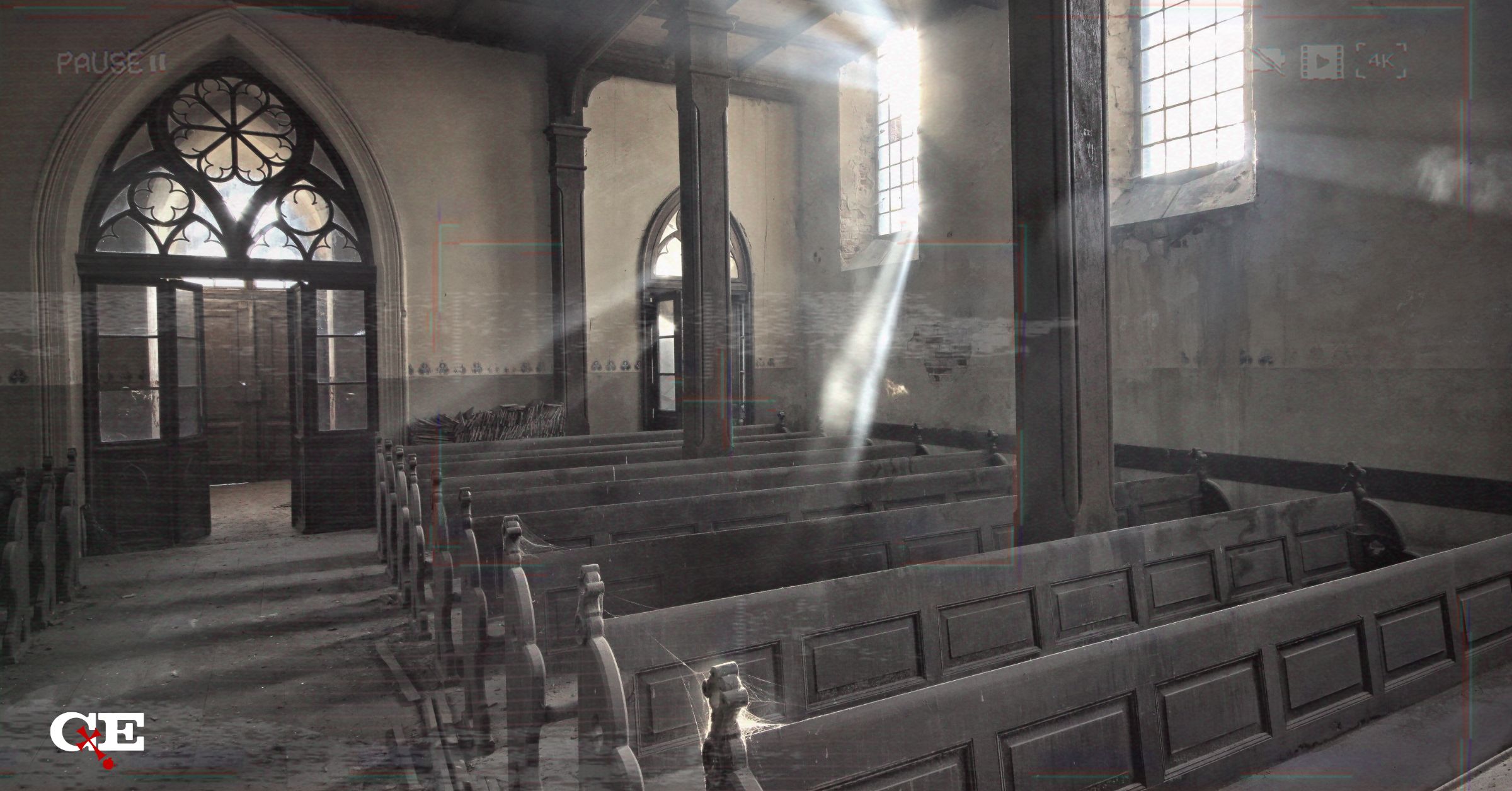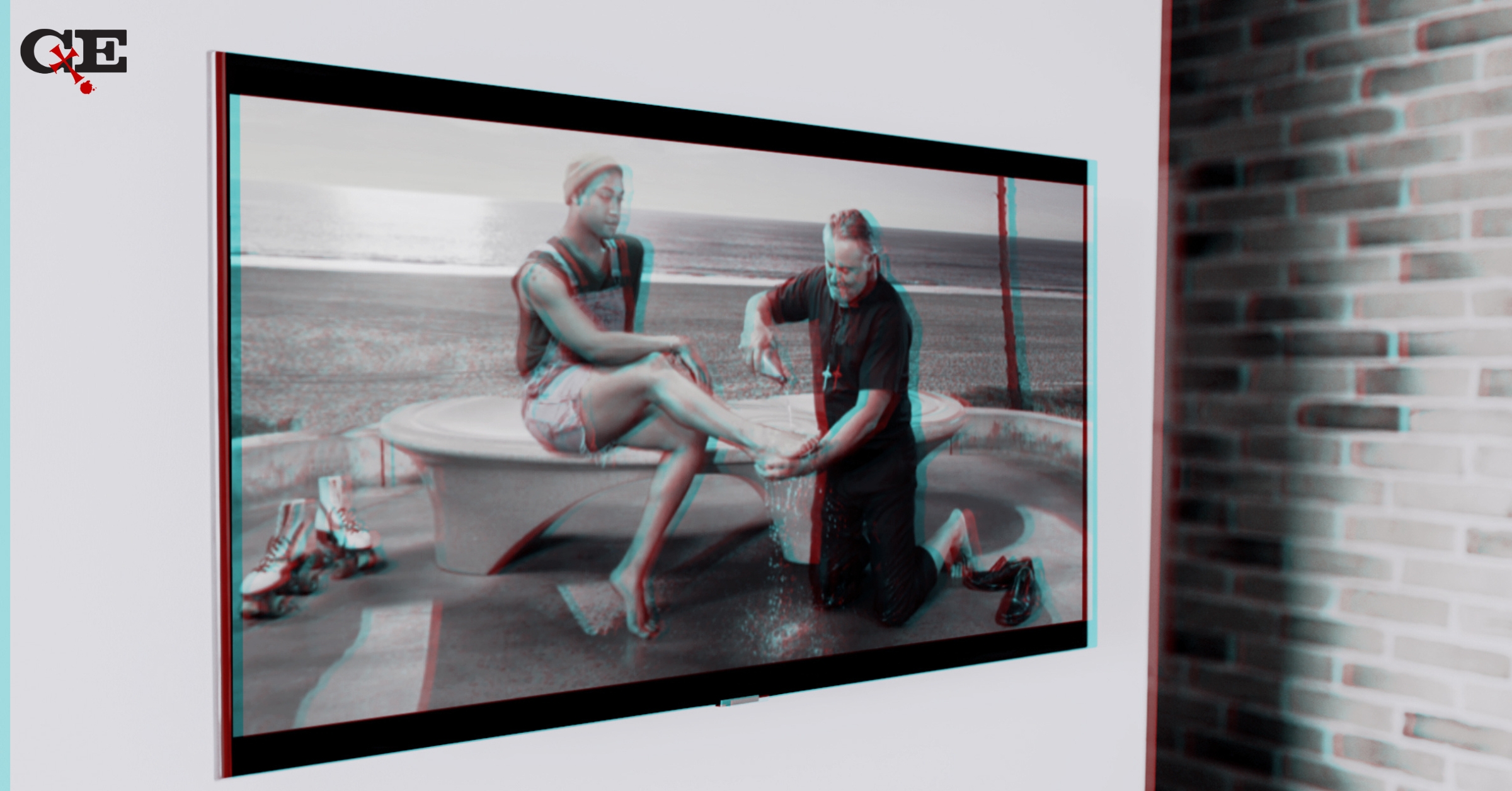Ever feel like talking to your atheist friend about faith is like hitting your head against a brick wall? You’ve tried explaining, debating, carefully exegeting Bible verses, but they just don’t get it after repeated corrections. You’re starting to wonder if they ever will. Sound familiar? You’re probably thinking, “Why do they keep twisting what faith really means?” It’s like they’re stuck in this loop, misrepresenting faith as some blind leap without evidence. You’ve been patient, clear, and respectful, but nothing seems to change. It’s enough to make anyone want to throw their hands up and walk away.
But hang tight. There’s a reason for their stubbornness, and it’s not just about being argumentative. The truth is, atheists often fall into hidden fallacies that keep them from truly understanding faith. To be fair, it’s not their fault entirely.
But here’s the good news: knowing what these fallacies are can help you break through and bring clarity to your conversations. Ready to know why your atheist friend just can’t see eye to eye on faith? Let’s get started.
The Origin of Misconception: Where Did This Definition Comes From?
“We may define ‘faith’ as a firm belief in something for which there is no evidence. Where there is evidence, no one speaks of ‘faith.’ We do not speak of faith that two and two are four or that the earth is round. We only speak of faith when we wish to substitute emotion for evidence. And the substitution of emotion for evidence is apt to lead to strife, since different groups substitute different emotions.”
Bertrand Russell. Human Society in Ethics and Politics (1954), Ch. VII: Can Religion Cure Our Troubles? p. 213
Here’s a fun fact: You know what your friend and Bertrand have in common? They both didn’t consult a theological or philosophical dictionary for this definition of faith. If your friend has a similar definition, “believing something without evidence or in spite of,” let’s challenge it with seven key points:
- The majority of people who define faith as believing something without evidence are popular atheists.
- Virtually no well-informed Christian holds this view.
- No ecumenical council has endorsed this definition.
- The vast majority of renowned theologians and philosophers, historically or currently, do not teach it.
- Atheists trained in philosophy don’t use this definition.
- No theological dictionary or encyclopedia defines the Christian faith this way.
- The etymological roots of the word “faith” don’t support this definition.
So, where does this definition come from? Certainly not from Christianity in general. Yet, many popular atheists assume that every religion shares this definition and paint all believers with the same broad brush.
Now, to be fair, there was (and still is with very few adherents) a school of thought called fideism. The Stanford Encyclopedia of Philosophy defines fideism as:
“[I]n some sense independent of, if not outright adversarial toward, reason. In contrast to the more rationalistic tradition of natural theology, with its arguments for the existence of God, fideism holds – or at any rate appears to hold . . . that reason is unnecessary and inappropriate for the exercise and justification of religious belief.”
One of the famous church fathers who is said to be a fideist was Tertullian. Per the article, there’s currently just a handful of Christian philosophers who are trying to (re)habilitate the position, like C. Stephen Evans, John Bishop, and Duncan Pritchard. I bet that your atheist friend doesn’t know them by name, much less their work. Even if they do know these philosophers and their work, to take this minority, minimally influential position and show it to others as the main position in Christianity is not honest.
No matter where these atheists took this definition, the best way to go is to research what is the most well-held and robust definition used by the religion and then critique it fairly. Now, here’s the twist: If faith is believing something is true without any evidence or in spite of evidence, then what is the evidence that faith is believing without evidence or in spite of it?
If your atheist friend doesn’t have evidence for this definition, then by his own logic, he’s taking it on faith. Many atheists are unaware of this self-defeating aspect of their definition. For some, showing this self-defeating outcome will be enough to change their minds. But others are more stubborn.
How Atheists Turns Faith into a Punching Bag
Atheists often trip over the strawman fallacy when discussing faith. They misrepresent it (knowingly or unknowingly), making it seem weaker than it actually is. They beat up faith like a punching bag with adjectives like irrational, illogical, unreasonable, and even immoral.
This is where the frustration kicks in for Christians. You’ve likely thought, “That’s not what faith is at all!”Christian faith is not about blind belief. The Bible defines faith as “confidence in what we hope for and assurance about what we do not see” (Hebrews 11:1). Key words here are “confidence” and “assurance”.
J. Warner Wallace gives a great insight into faith in his commentary about Hebrews 11.1.
“Is the author saying, ‘Now faith is the assurance of things hoped for, when the evidence is unseen?’ No, he’s saying just the opposite. When considering chapter 10 prior to interpreting verse 11:1, it’s clear that the author is encouraging his readers to endure those times when God seems absent; those times when trials and tribulations cause us to question God’s existence. Where is God in these difficult situations? Why can’t we see Him? Why can’t we see His activity in our lives? In verse 11:1, the author of Hebrews says that we can trust that God’s salvation, protection and provision are still there for us, even though they may appear to be ‘things not seen.’ In spite of their apparent absence, we are told to trust that they exist. Why? On what basis? On the basis of what we can see.’”
It’s about trust, grounded in reason and experience, even when we can’t see everything clearly. Imagine trusting you father to catch you in a trust fall. You believe they’ll catch you not because you’ve closed your eyes to reality, but because you’ve seen them do it before. You’ve experienced his reliability. This is exactly what the Christian believes when they speak about faith.
Think about historical evidence, philosophical arguments, scientific evidence, personal experiences that underpin Christian faith.
- Historical Evidence: Like the reliability of the Bible, or the historical accounts of Jesus’ life, death, and resurrection, gives us a foundation.
- Philosophical Arguments: Such as the cosmological argument or the moral argument, provide rational support.
- Scientific Arguments: Such as the teleological argument, providing scientific support from astrophysics and biology.
- Personal Experiences: Like answered prayers or moments of peace and guidance in extreme persecution or dangerous situations, reinforce this trust.
So, when atheists dismiss faith as irrational or baseless, they’re attacking a strawman. They’re not engaging with the real, robust concept of faith that Christians hold. This misrepresentation feels like you’re speaking different languages. But this isn’t the only fallacy atheists fall into. There’s another subtle yet pervasive error that compounds the misunderstanding.
Demanding the Impossible: Why Atheists’ Requests for Material Proof Fall Flat
Here’s the other stumbling block: the category mistake. The word “evidence” in their definition is a very specific kind of evidence. Atheists often demand material evidence for a non-material entity like God. They want physical proof, something they can see, touch, or measure. But this demand is like asking for the weight of love. It just doesn’t fit.
We all accept many non-material realities without physical evidence. Think about love, justice, numbers, the reality of the past or consciousness. You can’t weigh these things or capture them in a test tube, yet they’re undeniably real and impactful. Similarly, God, as a non-material being, doesn’t conform to the constraints of the physical realm. Different types of evidence support different kinds of realities.
- Empirical Evidence: Works great for physical phenomena. You can see gravity’s effects, measure it, and predict it.
- Philosophical Arguments: Can demonstrate the necessity of a first cause, the existence of objective moral values, or the existence of abstract objects (like forms and numbers).
- Historical Evidence: Like the resurrection of Jesus, can be scrutinized and debated but remains rooted in strongly reliable circumstantial case.
- Experiential Evidence: Personal encounters and transformations provide a compelling, if subjective, form of proof.
Yet, atheists often miss this distinction. They insist on material evidence, not realizing they’re committing a category mistake. That’s like asking for proof of a sound’s color. The category doesn’t apply. This narrow view limits their understanding, keeping them stuck in a loop of disbelief.
Locked in Their Own World: How Atheists’ Limited View Blocks Real Understanding
Now, let’s talk about the personal incredulity fallacy. This one’s a biggie. If your friend’s worldview is materialism, naturalism, or even scientism, his worldview won’t leave room for anything beyond the physical, the material, the natural, or the scientific. It’s like trying to explain a smartphone to someone who’s only communicated through a keyer (the code morse machine). They just can’t wrap their heads around it.
This incredulity stems from a strict ontology of the world (what makes the world be like it is), like naturalism, or a strict epistemology of knowledge (how knowledge is acquired), like scientism. If something can’t be explained by the laws of nature, measured, or observed in a lab, it’s dismissed.
But think about the vastness of our universe, the complexity of human consciousness, the depth of love and morality. Not everything that’s real fits neatly into the scientific method or under a microscope.
Here’s where the frustration really ramps up. You’re explaining faith, using philosophical reasoning, historical proofs, scientific evidence, and personal experience. Yet, your atheist friend keeps shaking their head, saying, “I just can’t see it. If there’s evidence, there’s no need for faith. You can’t call that faith.”
It’s like they’ve put up a wall, and no amount of reasonable arguments will make a hole. This fallacy blocks openness to other ways of knowing. In science, we trust empirical evidence. In history, we rely on documented events and testimonies. In philosophy, we use logical reasoning. And in personal life, we trust experiences and relationships. Each of these ways of knowing offers a different lens. When atheists cling only to empirical evidence, they miss out on the fuller picture.
Think about it like this: You wouldn’t use a thermometer to measure happiness, right? Similarly, insisting on material evidence for everything limits understanding. Personal incredulity keeps the door shut to knowledge and experience that faith draws upon. When your arguments don’t seem to make a dent, it’s time to try a different approach.
Still Unconvinced? Here’s What to Do When Arguments Hit a Wall
So, what do you do when all this falls on deaf ears? When, despite your best efforts, your atheist friend still won’t budge? Here’s where patience come into play. It’s frustrating, sure. But it’s also an opportunity to reflect Christ’s love and patience.
- Recognize the Limits: Not every conversation will lead to a grand epiphany. And that’s okay. Sometimes, it’s enough to plant a seed, to offer a perspective they hadn’t considered before. It’s about the long game, not quick wins.
- Continue the Relationship: Keep the dialogue open. Respect their views, even if they don’t respect yours. Show that you value them as a person, not just as a potential convert. Your actions, your love, and your patience can speak volumes. Often, it’s these quiet, consistent demonstrations of faith that make the biggest impact over time.
- Pray for Them: This isn’t about manipulation. It’s about genuinely seeking their good, asking for God’s guidance and wisdom in your interactions. Trust that the Holy Spirit works in ways we can’t always see or understand. Sometimes, the most powerful conversations happen when we step back and let God do His work.
- Reflect on Your Own Journey: Recall how long it took you to recognize your error and your need for a Lord and Savior. Show some grace. Remember that faith isn’t just about convincing others through argumentation; it’s about living out your beliefs authentically and joyfully. Be the kind of person whose life reflects the love, hope, and peace of Christ. This witness, more than any argument, can draw others to consider faith in a new light.
In the end, it’s about more than just winning debates. It’s about building bridges, fostering understanding, and showing the love of Christ in every interaction. Your atheist friend might not change their mind overnight—or ever. But your faithful witness and loving presence can make a difference in ways you might never fully see. And that’s a God honoring mission worth pursuing.
Wrapping Up: Keeping the Faith in Every Conversation
It’s tough. I know. Especially when your friend is someone you sincerely and genuinely love. You’ve been there—spending hours, maybe even years, trying to explain faith to your atheist friend, only to be met with skepticism or outright dismissal. It feels like you’re running in circles, repeating the same arguments, and still hitting a wall. Discouraging, right?
You’re not alone. So many Christians are in the same boat, feeling that sting of misunderstanding. You’re pouring out your heart, trying to share something deeply personal and important, and it feels like it’s falling on deaf ears. You might be thinking, “Why even bother? Is it worth all this effort?”
Absolutely, it is. Every conversation, every patient explanation, is a seed planted. The insights from this article equip you with the understanding of those hidden fallacies that trip up your atheist friends. You now know why they misunderstand faith and how to steer the conversation towards clarity.
Think about it—understanding the strawman fallacy, the categorical error, and the personal incredulity trap puts you miles ahead. It gives you the tools to navigate these tricky waters with grace and wisdom. But here’s the kicker: It’s not just about winning debates or changing minds. It’s about embodying the love and patience of Christ. It’s about showing that even when the conversation hits a wall, your love and respect for your friend remain unshaken.
That’s powerful. That’s transformative. Remember, you’re not alone in this journey. Many have walked this path and found that persistence, patience, and prayer can work wonders. So, take heart! Each interaction, no matter how small, is a step forward. Your steadfastness and faithfulness are not in vain. So, go out there and keep those conversations going. Keep planting those seeds. Let your faith shine through your words and actions. And trust that, in time, even the hardest hearts can soften. Keep the faith, stay strong, and let God do His thing. You are making a difference, one conversation at a time.
Recommended Resources:
I Don’t Have Enough Faith to Be an Atheist (Paperback), and (Sermon) by Norman Geisler and Frank Turek
Stealing From God by Dr. Frank Turek (Book, 10-Part DVD Set, STUDENT Study Guide, TEACHER Study Guide)
Macro Evolution? I Don’t Have Enough Faith to be a Darwinist (DVD Set), (MP3 Set) and (mp4 Download Set) by Dr. Frank Turek
Debate: Does God Exist? Turek vs. Hitchens (DVD), (mp4 Download) (MP3)
Miguel Rodriguez is the founder of Smart Faith, a platform dedicated to helping Christians defend their faith with clarity and confidence. After experiencing a miraculous healing at 14, he developed a passion for knowing God through study and teaching. He now serves as the Director of Christian Education and a Bible teacher at his local church while also working as a freelance email marketer. Living in Orlando, Florida, with his wife and two daughters, Miguel seeks to equip believers with practical and intellectual tools to strengthen their faith. Through Smart Faith, he provides apologetics and self-improvement content to help Christians live with wisdom and integrity.
Originally posted at: https://bit.ly/4krU0fD

